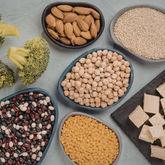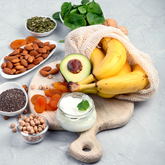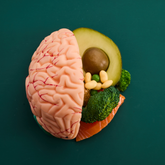In recent years, plant-based milk has become a staple in many households, offering a dairy-free, eco-conscious, and nutrient-rich alternative to traditional cow’s milk. But have you ever wondered what happens to the nutrients in plant milk during processing? Whether you're blending almonds or oats, or using coconut or soy, the method of making plant milk can significantly impact its nutritional value.
At Milky Plant, we’re committed to helping you make the freshest, most wholesome plant milk at home. Let’s explore how different processing methods affect nutrients, and how homemade milk stands out from store-bought versions.
1. Homemade vs. Store-Bought: The Nutrient Gap
Store-bought plant milk is often heat-treated (pasteurized) to extend shelf life, which can lead to the loss of some heat-sensitive nutrients like:
- Vitamin C
- Certain B vitamins (like B1, B6, and folate)
- Phytonutrients found in nuts and seeds
On the other hand, homemade plant milk retains more of these delicate nutrients. There’s no high-heat processing or long storage time, meaning your plant milk is packed with the goodness of raw ingredients.
2. Filtration & Straining: What Gets Lost?
Straining plant milk helps remove pulp and fiber, creating a smooth drink. However, this step can also result in some nutrient loss, particularly:
- Dietary fiber
-
Some minerals bound to the pulp, such as calcium and iron
That said, the remaining milk still contains a wealth of nutrients, particularly healthy fats, natural sugars, and water-soluble vitamins. If you want to boost fiber intake, consider using the leftover pulp in baking, smoothies, or energy bites!
3. The Impact of Additives in Commercial Milks
Many commercial plant milks are fortified with nutrients like calcium, vitamin D, and B12. While this can be beneficial, these milks also often include:
- Emulsifiers
- Preservatives
- Added sugars
- Flavorings
These additives can compromise the purity of the drink, and may not align with a clean, whole-food lifestyle. When you make milk at home with Milky Plant, you control every ingredient. Want more calcium? Add sesame seeds. Need extra protein? Blend in hemp or soybeans. It's custom nutrition made simple.
4. Heat & Nutrient Sensitivity
If you heat your homemade plant milk (for lattes, soups, or baking), some nutrient degradation is inevitable. Vitamins like B1 (thiamine), B5, and C are particularly sensitive to heat. However, most minerals (like magnesium, potassium, and zinc) remain stable during heating.
To preserve maximum nutrition, enjoy your plant milk cold or gently warmed, never boiled.
5. Milky Plant: Freshness Matters
Milky Plant’s innovative cold-blend technology allows you to make plant milk without preservatives or high heat. In just minutes, you get:
- Nutrient-rich, freshly made milk
- No waste packaging
- No additives or hidden sugars
And best of all, you can use a wide variety of ingredients—from almonds and oats to sesame, flax, or even coconut—tailoring your milk to your nutritional needs.
When it comes to nutrition, how you make your plant milk matters. Homemade plant milk retains more of the vitamins, minerals, and beneficial compounds naturally present in whole foods. With Milky Plant, you're not just choosing sustainability and taste, you're also choosing optimal nutrition.
Say goodbye to processed cartons and hello to homemade nourishment. Your body, your taste buds, and the planet will thank you.















